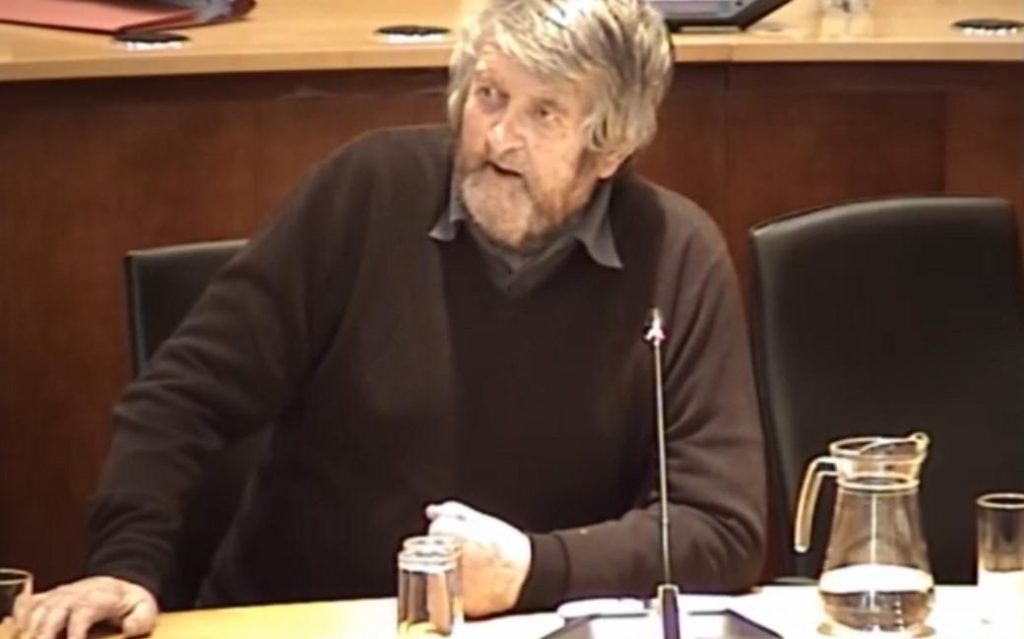News
Pembrokeshire chocolate factory shortlisted for three Wales start-up awards
 WICKEDLY WELSH CHOCOLATE, based in Haverfordwest, has been shortlisted for three separate Wales Start-Up Awards; food and drink start-up of the year, tourism and leisure start-up of the year and Swansea Bay city region business start-up of the year.
WICKEDLY WELSH CHOCOLATE, based in Haverfordwest, has been shortlisted for three separate Wales Start-Up Awards; food and drink start-up of the year, tourism and leisure start-up of the year and Swansea Bay city region business start-up of the year.
Becoming finalists in three categories was a fantastic surprise to the chocolate factory owners who only entered two categories, with the panel nominating them for the surprise third regional award.
The chocolate factory was launched in April 2014 by husband and wife team, Karen and Mark Owen, with two aims: make the best chocolates possible and provide a unique, fun and memorable chocolate-based experience everybody can enjoy. The factory is fronted by a chocolate experience centre, including a shop, a café and a ‘have a go zone’, allowing visitors the opportunity to both learn about chocolate and to make their own unique chocolatey treats.

Mark Owen: Chocolate makes me happy
The Wales Start-Up Awards are different to any other awards within Wales, focusing entirely on local start-ups, celebrating their successes and contributions to the local economy.
The two award categories the team are competing in are ‘Food and Drink start-up of the year’ and ‘Tourism and Leisure start-up of the year’. The team were over the moon to discover they’d become finalists in both categories and couldn’t believe it when they were told they’d been selected to become finalists in the ‘Swansea Bay City Region business start-up of the year’ also.
Karen and Mark were interviewed by the awards last Wednesday (Aug 3), where they were given the opportunity to showcase the chocolate company and explain why they feel Wickedly Welsh Chocolate should be selected to win in the three hotly contested categories.
Mark Owen, Chief Taster and Chocaholic of Wickedly Welsh Chocolate, told The Herald: “We were genuinely shocked and delighted to have been shortlisted for both our categories, but the third – well, that was emotional. We’ve put our hearts and souls into getting Wickedly Welsh Chocolate up and running and to receive this level of recognition is just fantastic. To get so far in a national competition is a real landmark achievement for us and we already feel like winners. We’re so proud of our team.”
They will find out if they’ve been successful at the awards night which will be an informal celebration at DEPOT in Cardiff on the evening of September 16th.
Herald TV visited the chocolate factory when it opened, which you can view below.
News
‘Honest’ caravan site owner ran site ‘under the radar’ for 20 years

A PEMBROKESHIRE caravan site owner who “honestly” admitted “dodging under the radar” by running his site without permission for some 20 years will not be allowed to continue doing do.
In an application before Pembrokeshire County Council’s April planning committee, Nicholas Kinahan sought retrospective permission to continue operating his caravan site with 19 touring pitches, along with caravan storage and the erection of a storage shed at Penrath Farm, Ryelands Lane, Kilgetty.
The long-running site operation, a kilometre from nearby Kilgetty, off the narrow Ryelands Lane, was discovered as part of an ongoing enforcement action.
The application was recommended for refusal on a long list of grounds including the site was in the open countryside, did not propose any community facility, was not supported by a Green Infrastructure Statement, no biodiversity enhancement features, the nearby road being a narrow single-track lane with no visibility splays for access, and concerns over foul waste disposal.
Kilgetty/Begelly Community Council has objected to the scheme on the basis of a lack of information provided within the application and access safety.
One third party representation was also received, raising concerns including a lack of information in respect of type of caravans and their use, no surface water or foul waste drainage details, a lack of an ecology survey, and no highway impact assessment.

Speaking at the meeting, farmer and caravan site owner Mr Kinahan said there were three caravans on-site after he moved to Kilgetty in 2004, housing tenants “on benefits,” with nine caravans on-site by 2010 and ‘vans from other sites stored on site later.
“We’ve done wrong and we know we’ve done wrong,” he told councillors, adding: “I can’t afford to live there without this little bit of extra income.”
Speaking on behalf of neighbour Micheal Ormond of Ryelands Caravan Park and his concerns, Andrew Vaughan-Harries – a planning agent who normally represents applicants – said to the applicant: “When I look at this application, personally, I think you’ve tried to do the application yourself.
“We see many, many problems with this application, a septic tank is not acceptable in 2024, there are lots of issues; it’s unsustainable and has to fail.”
Councillor Mark Carter said: “What can I say really? I think we’re looking at a very honest man, unfortunately in this case he’s got it wrong; he’s had a 20-year run of dodging under the radar.
“We have to respect the law and the policy and be fair to every caravan site.”
Moving the application be turned down, he said: “Much as I admire the gentleman for his initiative, I have to go with the officer recommendation for refusal.”
Councillor Rhys Jordan thanked the applicant for his honesty, adding: “I don’t think he’s tried to ride roughshod over planning, I think he’s been naïve, but I can’t support this application.”
The application was unanimously refused by planners.
Members heard the saga of Kinahan’s caravans may not be ended with a planning refusal, the option of a potential certificate of lawfulness – if he could prove the development had been in place enforcement-free for a decade-plus – being mooted at the meeting.
Committee chairman Cllr Jacob Williams said: “If you can prove it’s immune from enforcement it could be a ‘trump card’.”
News
Housing secretary plays down talk of Wales following Scotland on rent controls

THE HOUSING secretary poured cold water on suggestions Wales could follow Scotland’s lead by introducing similar rent controls, saying early indications show it has not worked.
Julie James was pressed for her views on rent controls in Scotland while giving evidence to a Senedd inquiry on the private-rented sector.
Altaf Hussain quizzed the housing secretary about affordability, raising concerns about rent rises since the pandemic, with landlords asking for big deposits and months’ rent upfront.
The Conservative warned this is leading some into unmanageable debt as he questioned whether there is a need to regulate a maximum deposit and rent.
Asked about the Welsh Government’s current thinking on rent regulation, Ms James told the local government and housing committee: “It hasn’t really worked in Scotland, I’m afraid.
“We’ve got some evidence, although it’s early days, to be fair, so we’ll want to monitor that for a longer time period. But, so far, the evidence is it’s not having the desired effect.”
Ms James pointed to a Welsh Government green paper calling for evidence on the right to adequate housing and rent control policies, with a second consultation to follow in summer.
She said: “We’re very keen to look at international examples from all over the place in terms of what works to get affordable rents into the sector.”
Ms James said she was very nervous the renters bill and leasehold reforms will not make it through the UK Parliament before a general election is called.
She warned: “We’ve got two years left of the legislative programme and the possibility of bringing a large bill through to replicate this is slim to none.”
Lee Waters, who was Ms James’ deputy until last month, said many tenants have damp or disrepair issues, but are unaware of their rights or too frightened for fear of eviction.
Suggesting the Welsh housing quality standard should be extended to the private sector, the Llanelli MS warned of a fundamental power imbalance between landlords and tenants.
Ms James criticised the UK Government for reneging on a commitment to uplift quality standards for the private rented sector at the last minute.
The housing secretary said protections under Wales’ Renting Homes Act have led to a substantial drop in evictions since coming into force in December 2022.
Mr Waters said tenants who are forced to move because their landlord has decided to sell face an average cost of about £1,700, suggesting two months’ rent should be waived.
Jack Sargeant, also a Labour backbencher, asked about pet-friendly policies, warning some homeless people face the dilemma of having a place to stay or giving up a companion.
Ms James said she was not able to pick which parts of the UK’s renters bill would apply, but she accepted an offer to be involved in “no benefits claimants” and “no children” exclusions.
She pointed to guidance that landlords cannot unreasonably refuse the right to have a pet but Ms James stressed there must be sensible limits
Recalling how she was once called to a high-rise building while working for Swansea council, she said: “We took an engineer with us and the lift kept breaking because people on the seventh floor were keeping a horse in their kitchen.
“This horse was relieving itself in the lift on the way down and it was breaking the mechanism. It was quite something to see this horse in this kitchen, I have to say.”
John Griffiths, who chairs the committee, raised concerns about a mismatch between the number of students and the amount of purpose-built accommodation in university cities.
Ms James said she has tried to persuade council planning departments they have the power to enforce better standards for student accommodation, so it can be more easily repurposed.
She admitted: “I have not been terribly successful at this but I plan to have another go.”
The former lawyer told committee members other levers will be looked at, including any unintended consequences of the council tax exemption for students.
Mr Griffiths also asked about scope for institutional investment in build-to-rent schemes, which often include shared facilities such as gyms.
Ms James said: “It’s not huge in Wales. It’s a lot less huge than it has become in England,” as she argued build-to-rent is not the solution to the housing crisis.
Mr Waters asked about low take-up of Leasing Scheme Wales, which offers incentives for owners to lease homes to councils, amid concerns the application process is “a bit of a faff”.
Ms James said the housing maintenance allowance, which has been frozen for years until the turn of the financial year in April, has been the main barrier.
She vowed to continue pushing the UK Government to say as soon as possible whether it is a one-off or if it will be uplifted next year in line with inflation.
“I think it’s pretty awful that they haven’t said so,” she told the meeting on April 24.
Community
Welsh National Scooter Rally gears up for a revival in Tenby

SCOOTER enthusiasts from across the country are set to descend on Tenby for the eagerly anticipated return of the Welsh National Scooter Rally this May Bank Holiday weekend. This marks the event’s grand return to the popular seaside destination for the first time since 2022, promising a vibrant celebration of scooter culture.
Organised by the Scooter Collective South Wales, the rally is expected to draw hundreds to Pembrokeshire’s “jewel in the crown.” Attendees can look forward to a colourful array of scooters lining the historic Tenby High Street, adding a splash of retro charm to the town’s picturesque scenery.
The weekend’s schedule is packed with activities, starting with a scenic ‘ride-out’ from Tenby United RFC on Heywood Lane on Saturday afternoon. This event promises to be a visual spectacle, with a parade of beautifully maintained and creatively decorated scooters cruising through the local area.
Music lovers have plenty to get excited about as well. The Specials Limited, a renowned two-tone tribute band, will be performing at the De Valence Pavilion on Friday night, supported by DJ Steve Foster. Concurrently, the Ex-Servicemen’s Club and Tenby Rugby Club will host rooms dedicated to Northern Soul and Reggae soul, respectively, ensuring that there’s something to suit all musical tastes.
Saturday’s festivities will also feature a customs show and traders fair at the Rugby Ground. This event provides a perfect opportunity for enthusiasts to showcase their scooters and exchange tips and accessories with fellow aficionados.
As the rally winds down, the weekend will conclude with a grand end-of-rally party at the Rugby Club, where participants can celebrate their shared passion for scooters and music, reflecting on a weekend full of fun and camaraderie.
For those planning to attend, the Welsh National Scooter Rally not only offers a chance to revel in scooter culture but also to explore the enchanting town of Tenby.
With its rich history and stunning coastal views, Tenby provides the perfect backdrop for an event that celebrates classic style and community spirit.
-

 News4 days ago
News4 days agoPolice and air ambulances at ‘serious incident’ at West Wales school
-

 Business2 days ago
Business2 days agoLargest Welsh port appoints communications and marketing director
-

 Crime4 days ago
Crime4 days agoPembrokeshire pensioner accused of 17 sexual offences against children
-

 Crime3 days ago
Crime3 days agoAll three school stabbing victims discharged from hospital, police confirm
-

 Community5 days ago
Community5 days agoCounty Hall to offer space for community banking
-

 Crime6 days ago
Crime6 days agoBrian Davis: Wanted on suspicion of commercial burglary
-

 Sport5 days ago
Sport5 days agoSwifts eyes on double.
-

 Community2 days ago
Community2 days agoSuspected explosive device found on west Wales beach

























